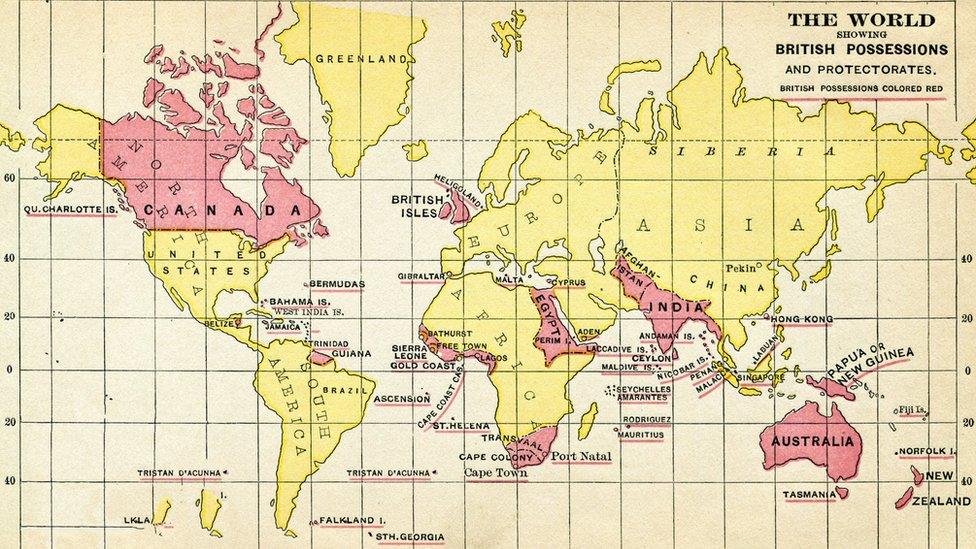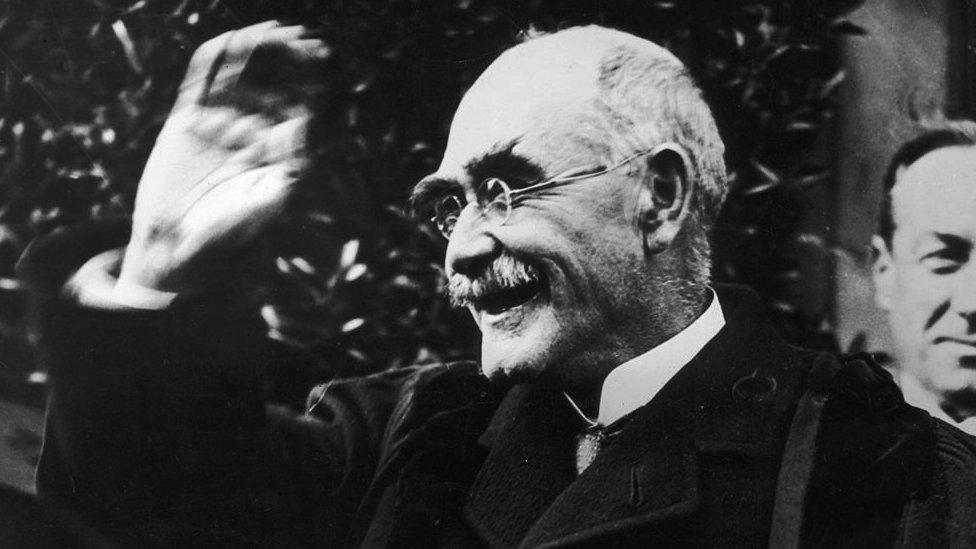UK citizenship test 'misleading' and 'false' on slavery
- Published

The information about British history given to people who apply for citizenship is 'demonstrably false', according to a group of academics.
In an open letter, external published in an academic journal, the historians and authors accuse the government document of misleading applicants about several aspects of British history.
They claim the UK's role in the international slave trade is downplayed, and that the end of the British Empire is described as "mostly peaceful" when it was not.
The letter calls for the history chapter of the pamphlet to be re-written urgently.
The Home Office says it will consider any feedback, and does keep the handbook under review.
What is the 'Life in the UK' test?
The test is taken by foreign nationals who want to become UK citizens.
The Home Office says it "focuses on values and principles at the heart of being British".
It covers things like British culture, music and sport.
But it's the section on Britain's history that this group of academics say needs to be addressed.
Empire State of Mind
The open letter singles out the sections dealing with slavery and the British Empire for its strongest criticism.
It takes particular issue with the document's claim that "while slavery was illegal within Britain itself, by the 18th century it was a fully established overseas industry".
"In fact," the historians write, "whether slavery was legal or illegal within Britain was a matter of debate in the eighteenth century, and many people were held as slaves."

The letter accuses the test of ignoring violent independence struggles like the Mau Mau uprising in Kenya.
The letter also questions a passage stating that "there was, for the most part, an orderly transition from Empire to Commonwealth, with countries being granted their independence."
"Decolonisation was not an 'orderly' but an often violent process," the historians argue.
And they say people from the former Empire who made valuable contributions to British culture are ignored in favour of white figures like the poet Rudyard Kipling.
"The only individual of colonial origin named in the book is Sake Dean Mohamet," they point out, "who co-founded England's first curry house in 1810."

Rudyard Kipling - who the letter says is 'celebrated' in the citizenship test.
'Under Review'
There are 181 signatories to the letter, including academics from many of the UK's most prominent universities.
They argue that in its current form, the handbook creates a "distorted view" of Britain's past.
"The aim of the official handbook is to promote tolerance and fairness and facilitate integration," they state towards the end of the letter.
"In its current version, the historical pages do the opposite."
The Home Office sent Newsbeat the following statement:
"Given the breadth of British history, the Life in the UK handbook provides a starting point to explore our past and help those seeking to live permanently in the UK gain a basic understanding our society, culture and historical references which occur in everyday conversations.
"We have published several editions of the handbook since it was launched and will continue to keep its contents under review and consider any feedback we receive."


Follow Newsbeat on Instagram, external, Facebook, external, Twitter, external and YouTube, external.
Listen to Newsbeat live at 12:45 and 17:45 weekdays - or listen back here
- Published17 July 2020

- Published15 July 2020
